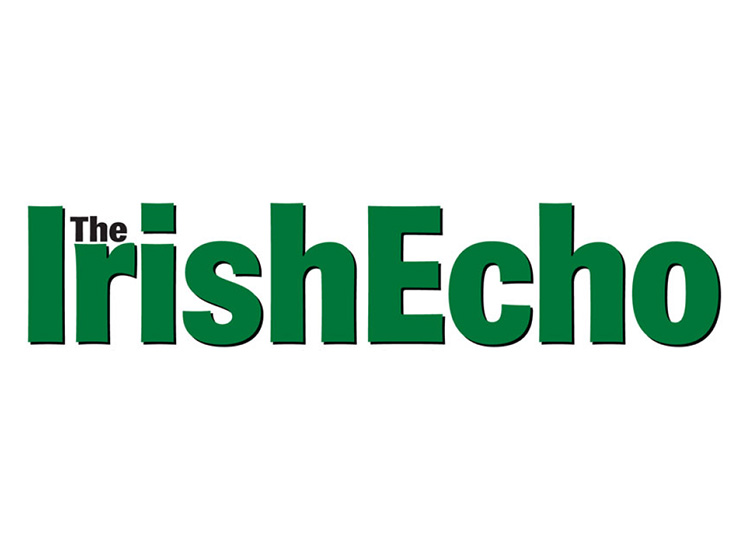[caption id="attachment_68854" align="aligncenter" width="600" caption="Enda Kenny."]
On December 6, 1921 the Anglo-Irish Treaty was signed. It allowed an Irish Free State to come into being, with self-governance, political autonomy, and fiscal independence.
The Free State remained part of the British Empire. Its officials acknowledged the monarch as its head and the British navy retained naval bases in Ireland.
However, the treaty gave Ireland, in the words of signatory Michael Collins, "the freedom, not the ultimate freedom that all nations desire and develop to, but the freedom to achieve it."
Subsequent diplomatic efforts by the Free State, culminating in the Statute of Westminster of 1931, gave absolute autonomy to dominion governments from Westminster legislation, including the treaty itself.
Because of that, Eamon de Valera, the political leader of those in Ireland who had unsuccessfully opposed the treaty, was able to assert that ultimate freedom in constitutionally removing those clauses in the treaty, such as the oath to the monarch and the office of governor general, between 1933 and 1937.
Now, ninety years after the treaty, in a televised speech to the nation, Taoiseach Enda Kenny indirectly admitted the loss of some national independence, when he said "I want to be the taoiseach who retrieves Ireland's economic sovereignty, and who leads a government that will help our country succeed."
His remarks were a prelude to the budget which the Irish coalition government would present on the following two days to Dáil Éireann, a budget whose contents were apparently known long before by members of the German Bundestag.
That budget called for substantial indirect tax increments and expenditure reductions. These were mandated by the European Union in accord with the pressure being put on its members to correct their fiscal imbalances, especially if they were to be the beneficiaries of substantial loans from the European Central Bank, the European Union, and the International Monetary Fund.
The Irish, one of those beneficiaries, have already gone a long way toward curbing their governmental expenditures. However, they are still burdened by the government's assumption of the debts of the Irish banking industry. The banking insolvency is owned to European banks and was incurred during the free-wheeling days of the Celtic Tiger.
Later that same week, the Irish joined with the leaders of twenty-five other nations in accepting in principle the granting to the European Union of substantial controls over the domestic budgets as well as the financial and economic regulations and policies of the member states.
Even nine of the ten EU nations that do not use the euro as currency accepted the tentative agreement. The United Kingdom alone refused to join what was being hailed as the step that would save the euro and prompt European recovery.
While the details of the agreement are yet to be worked out, complications are already developing. One is the question as to whether or not the agreement is of such a nature as be considered a treaty, or is it just an agreement within a treaty?
If it is the former, which seems most likely, then it would require ratification by the various members. Ireland would be constitutionally bound to hold a public referendum on the question.
The taoiseach and the government are awaiting the determination of the attorney general as to whether a referendum is required, but many in the opposition ranks, ranging from Fianna Fáil, through independents, to Sinn Féin, are insistent on a referendum, and many would oppose its acceptance.
But opponents of its acceptance are motivated by a variety of perspectives.
Some fear the proposed refinancing of the debts of various European nations are the same as have already been tried unsuccessfully. To such observers it seems to be a further postponement of the ultimate day of reckoning that has been delayed by loans built upon loans.
Others take seriously the implied loss of sovereignty if the new arrangement is accepted, in spite of the taoiseach's promise to retrieve it. It would be an ironic reversal of what was achieved in the 1921 treaty.
Many thoughtful commentators argue that the Irish would be better off by increasing their links and collaboration with the United Kingdom, a major ally in championing Irish interests in the European Union.
Along the same lines, some would go so far as to have second thoughts about the Irish commitment to the still uncertain euro currency.
They would point to such factors as Britain remaining Ireland's major trading partner, as well as to Irish trade with such non-euro nations as the United States, Canada, and Australia. There is also the reality of the large number of Irish living in the United Kingdom.
Not to be forgotten is the fact that part of the island of Ireland, whose residents are considered Irish citizens, is part of the United Kingdom. Linking the nation of Ireland more closely to a centralizing European Union and the isolating of the United Kingdom would guarantee the continued political division of the island of Ireland.
In that light, consideration might be given to speculation about the Europe of 2021 that appeared in The Wall Street Journal on November 19.
In it, the Harvard historian, Niall Ferguson, envisioned a more centralized United States of Europe, with its capital in Vienna rather than Brussels, but dominated by Germany, from which leagues of Scandinavian and Baltic nations would be separate, as would also be "a Reunited Kingdom of Great Britain and Ireland."
The last concept would be more appealing if it were called the Union of Ireland and Great Britain.
The word "union" might make unionists accepting of a unification of the island of Ireland, while nationalist-republicans might be pleased by the absence of any reference to "kingdom."










